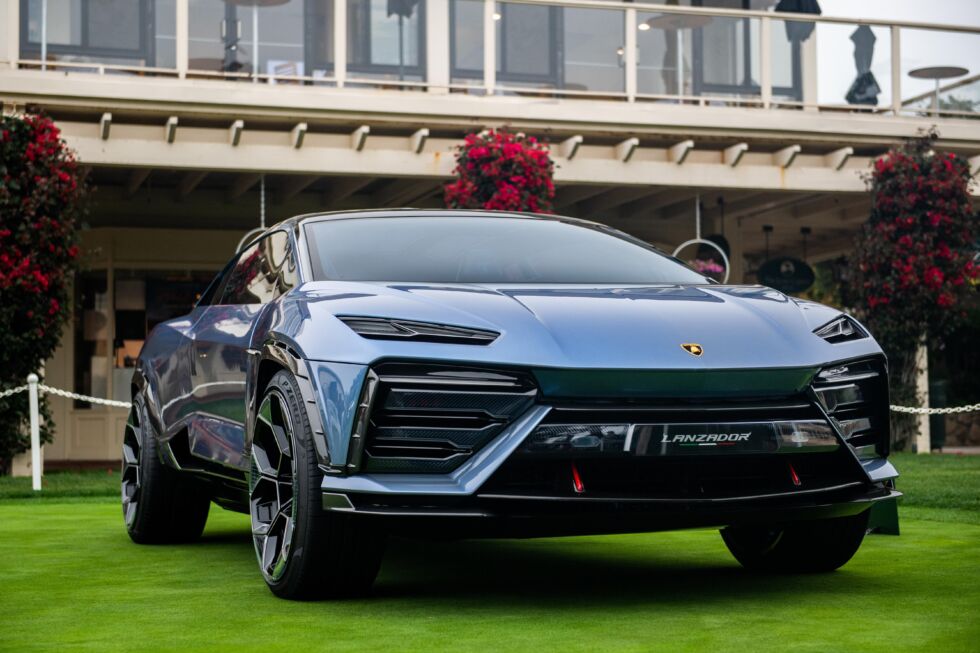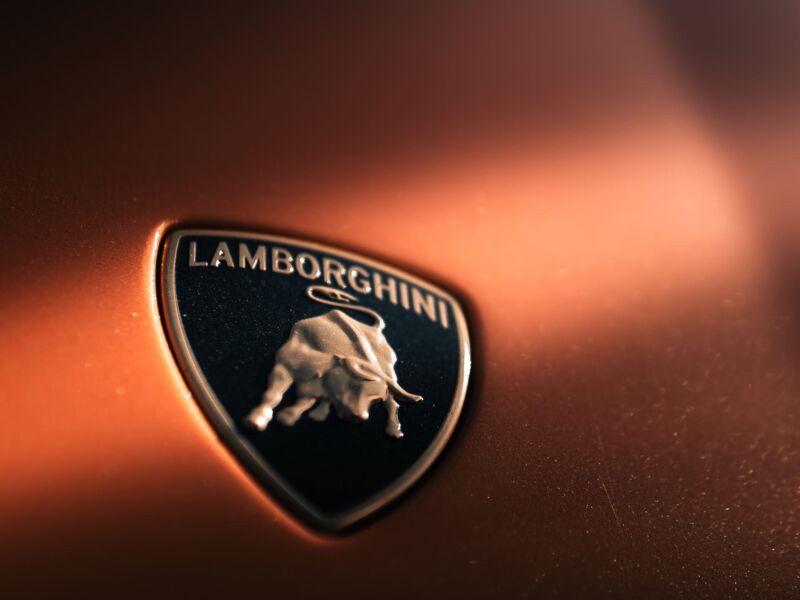When we think of Lamborghini, it’s hard not to think of sonorous, multi-cylinder, naturally aspirated engines. Long after Ferrari added turbochargers to its powerplants, its Italian rival from Sant’Agata Bolognese opted to stick with larger-capacity lumps that sounded symphonic throughout their rev ranges. But those aren’t entirely consistent with Lamborghini’s goal of reducing its fleet emissions by half in 2025, or by 80 percent in 2030. To that end, the brand will bring hybrid versions of all its models to market, Lamborghini CEO Stephan Winkelmann said.
“Last year we celebrated our sixtieth anniversary with the presentation of our first plug-in hybrid car, the Lamborghini Revuelto,” explained Winkelmann. “We had the presentation in summer of our race car, the LMDh car, which is going to race in Doha the first weekend in March. And then Pebble Beach in August,” he continued, where the brand showed off Lanzador, a concept of its first battery-electric car, which is due in 2028.
In October, Ars visited Lamborghini in Italy to learn more about how the supercar maker has been making its car production more sustainable—including the increased use of rail for freight shipping, more use of reusable and recycling waste materials from production, and even a biomass reactor that generates natural gas that powers much of the factory. In addition to cutting the emissions of its cars, the company wants to reduce the CO2 emitted during production by 40 percent by 2030.
The V12 Aventador has now been superseded by the hybrid V12 Revuelto, which went into production in 2023. This year, it will be the turn of the Urus SUV, which will gain a hybrid powertrain. But we also expect to see Lamborghini’s replacement for the mid-engined Hurácan sports car show up in 2024, sporting a traction battery and electric motor as well. This new “entry-level” Lamborghini is unlikely to stick with the naturally aspirated V10, though; a smaller-capacity V8 with a pair of turbochargers is more likely.

A Lamborghini BEV poses a few problems for the company’s traditional recipe of super-sports cars. Getting the right power-to-weight ratio for a start—lithium-ion batteries are still bulky and heavy. A Lamborghini needs to sound dramatic, too. But the brand does have a slight advantage in terms of a rather young customer base that is less wedded to tradition than, say, Ferrari’s.
“The biggest challenge is electrification more than digitalization, which is more for other brands, but the biggest for us, for sure. So far, we can say that what we’re doing right now is the right approach, so first to hybridize,” Winkelmann told me. The fact that the Revuelto has sold out for the next few years is proof that the brand’s customer base hasn’t been scared off, Winkelmann explained.
But a full BEV is in the works. “The car is going to be presented in 2028,” Winkelmann told Ars. Being part of Volkswagen Group (which bought Lamborghini in 1998) will be an advantage here, he thinks. “There is no company which is doing a complete verticalization in terms of development and production. So for sure, the advantage of Lamborhini is to be part of a big group. So before we start, let’s say, buying outside, we have a first-step purchasing approach inside the group in terms of battery, in terms of software, in terms of components,” he said.
The BEV due in 2028, a 2+2 GT car, will be followed in 2029 by a fully electric SUV replacement for the Urus.
“The electric motor opens up new horizons in terms of dynamics and driving experience. It is the dawn of a new era for super sports cars, in which we are redefining the concept of sportiness, enjoyment, and driving dynamics in sustainable terms. Our DNA will always be based on the concept of emotional performance,” said Lamborghini’s CTO, Rouven Mohr.
